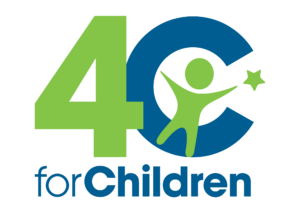 As the situation around the coronavirus causing COVID-19 evolves, 4C for Children is continuing to plan, prepare and respond as needed based on information provided by local, state and national health agencies.
As the situation around the coronavirus causing COVID-19 evolves, 4C for Children is continuing to plan, prepare and respond as needed based on information provided by local, state and national health agencies.
Although we are closing our offices to the public to minimize the spread of the virus, we will still be able to remotely serve you. To protect those we serve and 4C staff we are putting the following measures in place:
- All 4C for Children provider areas and lending libraries will be closed until April 13.
- All in-person training in Ohio and Northern Kentucky is canceled until April 13.
- In Ohio, 4C for Children will be adding more trainings throughout May and June to make up for the missed sessions in March and April. We will open registration earlier than usual for training that will take place in July through September.
- All coaching will be done remotely until April 13. Coaches will be in contact with you with further details.
- If there is an urgent Step Up To Quality need, please call the main 4C for Children line: 800-256-1296.
Please Note: Today, March 13 at 4 p.m. there will be a statewide informational call focusing on COVID-19’s impact on early childhood programs and providers in Ohio. This call is open to all members of the early childhood community. Representatives of state government and Ohio early childhood leaders will be joining the call to provide updates. You can join using this link: https://zoom.us/j/506109130 OR by calling 1-646-558-8656 (meeting ID 506109130#).
How You Can Prepare
The early education community is playing an important role in helping lessen the spread of COVID-19. Here are some things you can do to help lessen the spread and keep yourself and the parents and children you serve safe and healthy.
- Encourage families to have a child care backup plan. Now is also a great time to talk to families about updating or creating their child care backup plan in case schools are closed temporarily or their child care arrangements need to change. Here’s a resource you can share.
- Ask families to keep children at home when they are sick.
- Clean and disinfect frequently.
- Demonstrate good hand hygiene. Thoroughly washing hands with soap and water for at least 20 seconds can help reduce disease spread. These guidelines can help.
Additional Resources
Join a free webinar at 2 p.m. on March 20 that is being presented by Child Care Aware of America, Tom Copeland’s Taking Care of Business and Early Childhood Investigations Webinars: Bracing for COVID-19: What Early Childhood Programs Need to Know and Consider Now.
Get more information. There is a lot of misinformation surrounding the disease so be sure to take your lead from trusted resources. For the most up-to-date COVID-19 information, tools and resources rely on the Centers for Disease Control and Prevention, the Ohio Department of Health and the Kentucky Cabinet for Health and Family Services.
Talk to Children. In addition to talking with families about your program’s policies and procedures for dealing with illness, you can help families talk to children about COVID-19 by sharing this helpful resource.
We will continue to communicate with our providers, and will notify you if these details change based on recommendations from the CDC and other community entities.